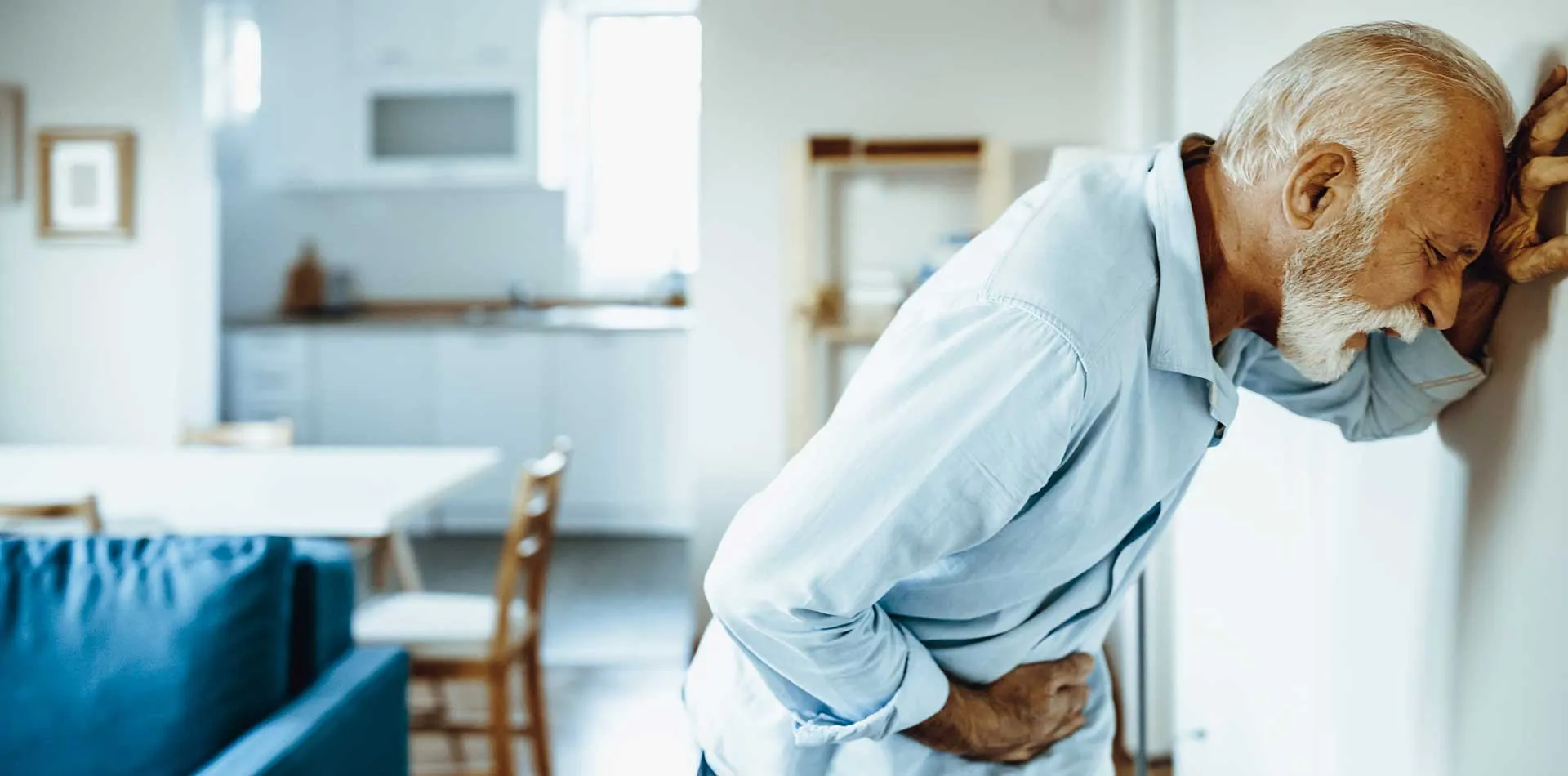Urinary incontinence results in a loss of bladder control, a distressing condition mainly due to age. This condition happens not only due to age and can happen to anyone.
The severity differs from occasional urine leaks while coughing or sneezing to a sudden urge to urinate that you don't get to a toilet in time.
When urinary incontinence affects daily activities, talk to your doctor for advice. Generally, simple lifestyle and dietary changes or medical care may help treat symptoms of urinary incontinence.
Understand the symptoms
People usually experience occasional, minor urine leaks, and some may lose small to moderate amounts of urine more frequently.
The kinds of urinary incontinence include:
• Stress incontinence. Urine leaks happen due to pressure on the bladder while coughing, sneezing, laughing, exercising or lifting something heavy.
• Urge incontinence. It is a sudden, strong urge to urinate followed by an involuntary loss of urine. You will need to urinate often, including throughout the night. Urge incontinence may result from a minor condition, like an infection, or a more severe condition like a neurological disorder or diabetes.
• Overflow incontinence. This condition happens when a bladder doesn't entirely empty, causing frequent or constant dribbling of urine.
• Functional incontinence. It occurs due to a physical or mental impairment that keeps the person from making it to the toilet in time, like the condition of severe arthritis, when you can't unbutton the pants quickly enough.
• Mixed incontinence. When there is more than one type of urinary incontinence, it usually refers to a combination of stress incontinence and urge incontinence.
Consult the doctor
You must seek a doctor's help when incontinence is frequent and affecting the quality of life. The condition can cause restrictions in your activities and limiting social interactions, adversely impacting the quality of life. It may raise the risk of falls in older adults when they rush to the toilet or indicate a more serious underlying condition.
Know the causes
Urinary incontinence can occur due to everyday habits, underlying medical conditions or physical problems. A doctor's thorough evaluation may help determine the cause.
Temporary urinary incontinence
Some drinks, foods and medications act as diuretics, spurring the bladder and increasing urine volume. These include alcohol, carbonated drinks and sparkling water, caffeine, artificial sweeteners, chocolate, chilli peppers and even large doses of vitamin C that may cause the condition. Also, foods high in spice, sugar or acid, especially citrus fruits and heart and blood pressure medications, sedatives, and muscle relaxants, are other factors resulting in urinary incontinence.
Urinary incontinence may also happen by an easily treatable medical condition, like the urinary tract infection that irritates the bladder, causing strong urges to urinate and, sometimes, incontinence. Constipation is another factor—the rectum, situated near the bladder, shares many of the same nerves. Hard, compacted stool in the rectum makes these nerves to be overactive and develop urinary frequency.
Persistent urinary incontinence
This condition is induced by underlying physical problems or changes that occur due to:
• Hormonal changes during pregnancy and the increased weight of the fetus causes stress incontinence.
• Vaginal childbirth may weaken muscles required for bladder control and damage bladder nerves and supportive tissue. This leads to a dropped (prolapsed) pelvic floor. The bladder, uterus, rectum or small intestine may get pushed down from the usual position and protrude into the vagina with prolapse; this bulge is associated with incontinence.
• With age, the bladder muscle weakens the bladder's ability to store urine, causing involuntary bladder contractions to become frequent.
• After menopause, women produce less estrogen, a hormone that assists in keeping the lining of the bladder and urethra healthy. Degeneration of these tissues may worsen incontinence.
• The enlarged prostate gland, mainly in older men, leads to incontinence, known as benign prostatic hyperplasia.
• Untreated prostate cancer in men may lead to stress incontinence or urge incontinence. Also, incontinence is a side effect of the treatments for prostate cancer.
• Any tumor along the urinary tract may block the normal urine flow resulting in overflow incontinence. Urinary stones — hard, stonelike masses which form in the bladder may also cause urine leakage.
• Neurological disorders like multiple sclerosis, a brain tumor, Parkinson's disease, a stroke, or a spinal injury may interfere with nerve signals involved in bladder control, causing urinary incontinence.
Recognise the risk
The risk factors include:
• Gender. Women are more prone to have stress incontinence due to pregnancy, childbirth, menopause and female anatomy. Men with prostate gland issues are also at raised risk of urge and overflow incontinence.
• Age. Age causes the muscles in the bladder and urethra to weaken. These changes due to ageing reduce how much the bladder can hold and raise the chances of involuntary urine release.
• Overweight issues. Extra weight may put pressure on the bladder and surrounding muscles, weakening them and letting the urine leak out while coughing or sneezing.
• Smoking. Tobacco use raises the risk of urinary incontinence.
• Family history. When a close family member has urinary incontinence, especially urge incontinence, the risk of developing the disease is higher.
• Some diseases. Neurological disease or diabetes also raises the risk of incontinence.
Associated complexities
The complications associated with chronic urinary incontinence are skin problems causing rashes, infections and sores that develop due to constantly wet skin, repeated urinary tract infections and negative and may restrict social, work and personal relationships.
Measures for prevention
Follow these preventive measures below to lessen the risk:
• Have a healthy weight
• Practice pelvic floor exercises
• Don't have bladder irritants, like caffeine, alcohol and acidic foods.
• Eat more fiber that helps prevent constipation, a cause of urinary incontinence.
• Avoid smoke, and seek help to quit smoking.
